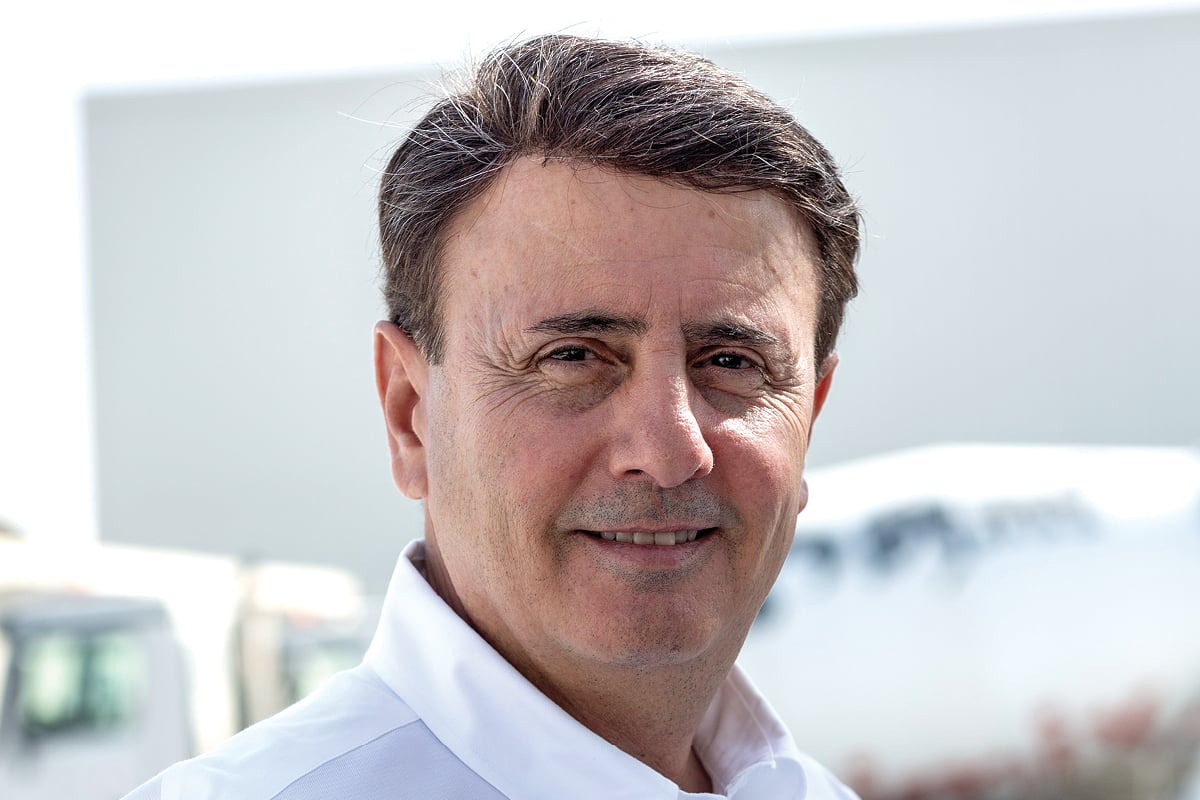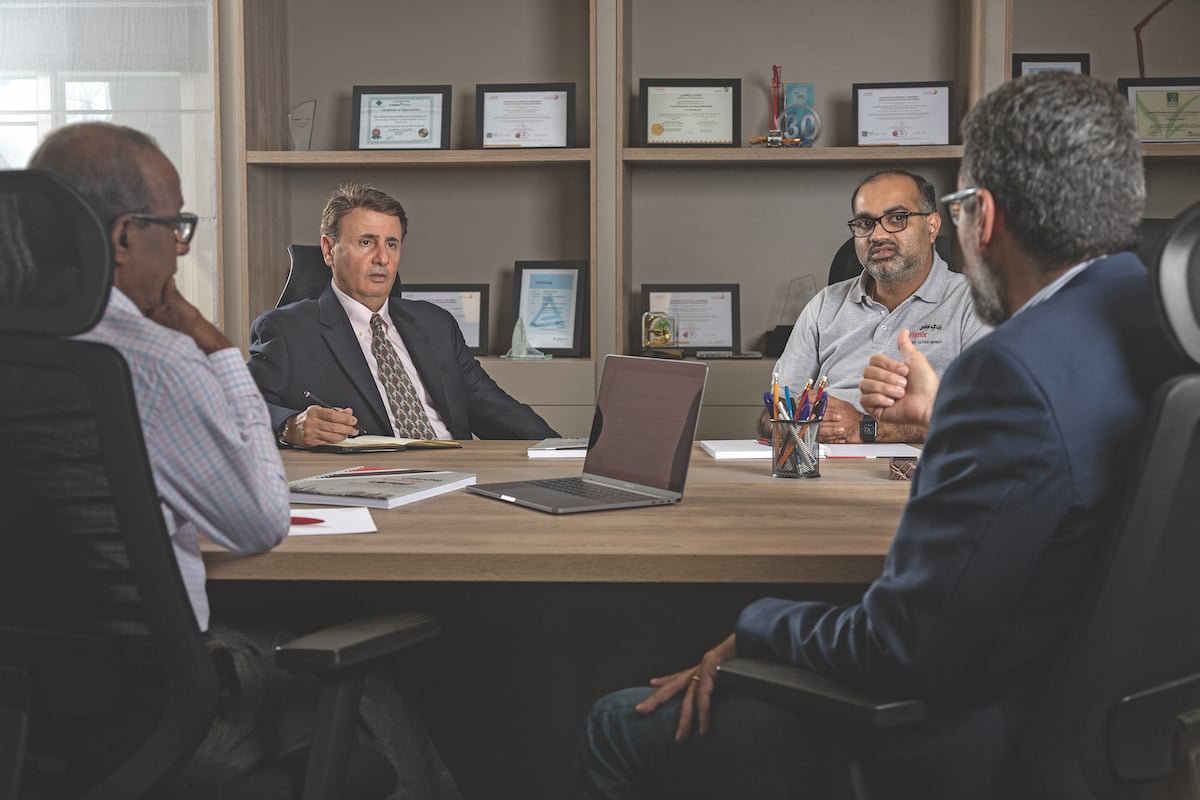“We surround ourselves with the best of the best.”: Basil Sanuri
Having reinforced the foundations of Unimix post-GFC, General Manager Basil Sanuri knows the Dubai-based concrete supplier can withstand any challenges on the horizon.
As the Dubai skyline ascended to dizzying heights during the late 20th and early 21st century, Unimix (Universal Concrete Products) rose with it, cementing its reputation as the partner of choice for landmark developments including 1994’s Burj Al Arab and 2004’s 160-storey Burj Khalifa. Business was booming – until 2008.

What happened next needs no introduction and, like many other businesses around the world, the company found itself battling the aftershocks of the global financial crisis for years to follow. In fact, when Basil Sanuri was appointed General Manager in January 2017, the effects were still being felt, even though almost a decade had passed.
"The Managing Director, and driving force behind the company, Khalid Mohammed Salem Albakhit, had restarted Unimix in 2013 with the intention of bringing it back to its former glory," Basil explains. "However, it took them a few years to realise that it simply wasn’t capturing the prestigious projects it had in the past."
With over 30 years of industry experience, Basil was already a familiar figure to Albakhit. "They wanted to make the business more dynamic," Basil explains. "I’ve always had the utmost respect for Albakhit, and vice versa. We agreed to try and rebuild Unimix to the company it once was and I think that’s what we have achieved."
Basil and his team threw themselves into the challenge, purchasing new equipment, expanding into new locations and exploring new market opportunities, such as infrastructure construction, large multiple-use facilities and special projects. "The owners and Managing Director gave us free rein and had complete confidence in what we could achieve," Basil continues.
From day one, a conscious decision was also made to pursue automation. "Within three months of joining, we had revamped our systems and installed a back office and operational software that has allowed us to link, manage and control every aspect of our business," he says. "It enhanced our competitiveness and efficiency."
The hard work of the past few years has certainly paid off. "We have been very successful in regaining our reputation for quality and service within the industry," Basil says.
"We have been very successful in regaining our reputation for quality and service within the industry."
"We have gained the notice of not only the contractors and customers but also our competitors and suppliers." Current projects are proof of this. The company is the chosen concrete partner for two of the city’s landmark developments: The Royal Atlantis Residences on Palm Jumeirah and the Museum of the Future, a visionary eye-shaped cultural centre set to open this year.

Now, however, another challenging cycle is looming. "While we are very well-positioned here in Dubai, the economy is slowing a little, especially in the construction sector," Basil warns. "There is an oversupply of properties and, as a result, construction is really taking a beating."
He believes this stagnation will last until Expo 2020, which Dubai is hosting from 20 October this year, draws to a close after a 173-day run.
Although his present approach in the Emirates may best be described as "wait and see", Basil and his team are concentrating on the potential offered by new markets, especially in Africa and Central Asia. "There’s nothing definitive on the horizon yet," he acknowledges.
"But we have spent the past 12 months looking and focusing on these areas and we are hopeful that we will be able to capitalise on some of these opportunities while maintaining our position in the UAE."
It’s a strategy Basil believes should bode well for the company during the slowdown, while he foresees others in the sector having to close their doors.
"If you look at the environment today, many of our competitors are falling by the wayside, going bust. They were making money when times were good, but they weren’t really doing the right things to sustain their businesses," he explains.
"We run our business very efficiently based on what’s happening in the market. We are sustainable, we’re solid financially, we focus on our customers and we try to provide solutions as opposed to just selling concrete. This is what differentiates us and seals our reputation as a reliable supplier."
Basil adds that in today’s competitive market, quality, service and a relentless customer focus no longer set a business apart. Instead, for Unimix, the leading edge comes from the ability to look beyond concrete.
"We consider the project as a whole and the technicalities that need to be addressed," he says. This means that, along with ready-mix concrete, Basil and his team are on hand to provide engineering support.
"We work very closely with specialists in domains such as thermodynamics of structures and thermal modelling, expertise that today’s engineers don’t always have on board," he explains.
"We work very closely with specialists in domains such as thermodynamics of structures and thermal modelling, expertise that today’s engineers don’t always have on board."
The result is win–win. "Not only do we supply quality concrete products, we also offer a service that helps our customers execute their project quickly and efficiently."
While Basil is pragmatic enough to acknowledge that "we don’t claim to do and know everything," he ensures he partners with similarly top-of-class enterprises.
"We surround ourselves with the best of the best when it comes to anything that supports our business and executing our job." It’s a philosophy introduced to help particularly in terms of supplier relations.
"When I first started at Unimix, the mentality was all about finding the cheapest price possible," Basil reveals. "We were conscious that the company’s reputation among suppliers wasn’t positive, so we made a decision to stabilise our suppliers based on the size of the business and what our expectations were moving forward."
An effort was also made by the company to assign each supplier to specific plants to ensure consistency. Although Unimix still cannot be considered an easy client today, there has been a definite shift in reputation.
"We were perceived as a high-maintenance customer and our strategy was to become a low-maintenance one," says Basil.
A commitment to understanding what is economically viable for both parties and a focus on making the company an attractive client that suppliers actively want to partner with have made relationships much stronger.
Improved communication and understanding have also helped the situation. "The only time I hear from suppliers now is when they come in to have a cup of coffee," laughs Basil.
Today, the behind-the-scenes operation is so streamlined that he is free to focus on what’s most important: supplying best-in-class ready-mix concrete. "The more time we have to focus on our final product and delivering our service to customers, the better off we are," he says.
Basil has faced many an obstacle already and there are undoubtedly more to come, but if there is one thing of which he is certain, it’s Unimix’s ability to stand tall thanks to the foundations reinforced during his tenure.
"The market may expand and contract, and we may have to expand and contract with it, but we are cognisant of where the market is at all times. We demonstrate to our customers that we are capable of executing their jobs, irrespective of the market conditions. That’s really important right now."
Proudly supported by: